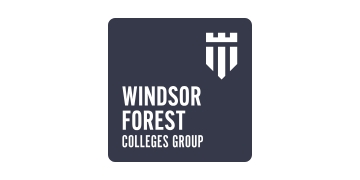The 11-month wait for a government outline of traineeships is over — but “disappointment” has been expressed about who can take them.
They were first proposed by Deputy Prime Minister Nick Clegg in June last year to help 16 to 24-year-olds gain work-related skills and attitudes.
But it wasn’t until today that the Skills Minister Matthew Hancock finally revealed their framework (click here to download the document).
They are being rolled out in August, but only 16 to 19-year-olds can take them, along with young people with learning difficulty assessments up to the academic age of 25.
David Hughes, chief executive of the National Institute of Adult Continuing Education, said: “It is disappointing, but understandable given the split of funding between government departments, that the statement is only about 16 to 19-year-olds.
“The need for traineeships is as compelling and urgent for young adults as it is for 16 to 19-year-olds and we are looking forward to an announcement on their offer soon.
Graham Hoyle, Association of Employment and Learning Providers chief executive, said: “It is very disappointing that the government has decided to restrict traineeships to 16 to 19-year-olds only, even if ministers have promised to review the criteria at some point.
“To make a real impact on the NEET figures and to provide a ladder for more young adults to get on to apprenticeships, the start of this vital new programme should have been more ambitious.”
Shadow Skills Minister Gordon Marsden said: “It is deeply concerning that the government at this stage is only bringing forward this policy for 16 to 19-year-olds, despite the high levels of NEETs aged 20 to 24.
“Government ministers must ensure traineeships provide a clear progression route for young people into apprenticeships or employment.”
Martin Doel, chief executive at the Association of Colleges, said: “We look forward to continuing to work alongside government and employers on the initial roll-out of the traineeship programme on the basis of our experience of delivering to 16 to 19-year-olds and to the potential of extending them to young people up to the age of 24, for whom we think traineeships could represent a very effective means of improving life prospects.”
A government spokesperson said: “We are announcing the 16 to 19 framework so that delivery of traineeships for this age group will be possible from the start of the 2013/14 academic year.
“We are looking to extend the traineeships programme to young people up to age 24 and we are continuing to explore the implementation issues.”
Traineeships will include work placements of up to six months, flexible training to build character and to help young people get ready for work — such as job search and interview skills, time-keeping and team working — and will develop learners’ English and maths.
However, providers without an Ofsted grade one or two will not be able to run traineeships in the scheme’s first year.
The framework document says: “Where this means there is no eligible provider in a location, we will support efforts to ensure that outstanding and good provision becomes available in that area.”
Lynne Sedgmore, 157 Group executive director, said she would be speaking to members about the policy, adding: “Ofsted grades are but one way of assessing provider quality.”
The AELP declined to comment on the Ofsted grade limitation to traineeships and nobody from the AoC was available for comment.
————————————————————————
Editorial: Good, but not perfect
The long-awaited traineeships announcement came with news that colleges and training providers without an Ofsted grade one or two will be banned from being involved.
This will have come as a surprise to many as the ban was not floated in the traineeship discussion document published in January.
In the FE Week office, there has been an interesting debate about the merits of the ban.
On the one hand, the policy is simple, transparent and sends an important and strong message about the importance of quality.
But is an overall Ofsted grade a reliable indicator of quality in the context of delivering traineeships?
For example, typically an Ofsted grade for a large college relates to long qualification teaching and success rates for classroom delivery — not the type of innovative employer engagement traineeships will demand.
So, an overall Ofsted grade is likely to be a crude and potentially unreliable measure.
But, on balance, and with no time to consider tenders or individual cases, it probably is the better quality criteria at hand.
All that said, a ban based on an Ofsted grade does raise a number of important questions.
What will happen to traineeship providers if an Ofsted inspection leads to a downgrading to a grade three or four?
And what pressures might this put on Ofsted to revisit providers?
Further, will providers without a grade one or two be banned from being a traineeship subcontractor?
And finally, given traineeships are part of the 16 to 19 study programmes, is the policy inconsistent because grade three and four providers are funded to deliver these?
Nick Linford, editor of FE Week
————————————————————————
Want to find out more? The sign up for this free webinar delivered by Nick Linford, sponsored by NCFE Traineeships, 3-4pm on Wednesday 15th May. Click here to register.






It raises a lot of questions which need to be answered as stated in Nick’s editorial asap
The grade 1 and 2 restriction seems okay (as someone in a college that got a grade 2 under old framework) as grade 3 & 4 colleges should be trying to sort core business first.
The fact it’s so late in the day means we’ve planned and allocated our EFA funding to teams (and then some). So initial thought is at best we might come across a couple but we wouldn’t actively go looking for them. The only reason we might consider these in a serious way is to steel a march on our competition without a grade 1 or 2.
I don’t think I’m alone being underwhelmed by the framework. Such a document that doesn’t state it’s ambition or impact is no policy at all. What are the target participation numbers?
It appears a policy has been released hoping it’s not too great a success. How do you limit numbers, well you could define a narrow entry criteria (age restriction), define a provider eligibility criteria (Ofsted grade) and finally make it an offer that doesn’t have a compelling business reason to invest in this new provision (appears to be funded by the EFA lagged model).
I would suggest that unless at least 1 of these restrictions are lifted Mr Linford will report early in 2014 about the failure of Traineeships.
If the aim is on improving overall life prospects, which some would argue is all about opening opportunities to employment, what about the providers whose data clearly demonstrates excellent rates of getting unemployed 16-18 into employment through the Apprenticeship route, who have yet to be inspected? Again a task one could argue is not the strength of a large college.
For me the restriction of this initiative to 16-19 year olds is the first really tangible example of the damage done to the FE system of splitting 16-18 and 19+ funding systems. It is so hard to fund 19+ work experience and Traineeships were a possible way forward, but I think the complexities of making one programme work across 2 divergent funding systems just proved too difficult so once again adults are disadvantaged.
On the contrary 157 Group, Ofsted grades are the best and most reliable way to asssess provider quality.
The restrictions of only making the Traineeship funding available to Outstanding or Good providers is the most responsible and effective way of spending taxpayers’ money and should be applauded.
Afterall how would a Grade 4 provider have the resources to set up an effective Traineeship programme when they should be using all of their resources sorting out their current inadequate provision.
I work for a grade 3 college, following inspection in mid-2012. However, our employer responsive department, in which I work, received outstanding grades for all measures at the same inspection; these grades were reported but didn’t count towards our overall grade. Our employer responsive delivery makes up almost 50% of our funding and we consider it to be a huge strength. A shame, then, that we, as an outstanding ‘department’ are unable to deliver traineeships as a grade 3 ‘college’. I understand why the line has been drawn but it’s inflexibility will disadvantage the learners in our region to whom we had planned on delivering traineeships.
As I stated in a tweet to Nick I think surely this artificial barrier of Ofsted is a misnomer in the ‘new’ world of freedoms and flexibilities colleges and providers. Surely as part of the Study Programmes organisations could simply design and deliver a traineeship like offer, called it transitship or, for old times sake pre-apprenticeship programme, and offer it under core funding?
My college got a 3 overall but a 2 for quality of teaching and 2 for wbl so like zac above surely we would he good candidates to deliver these anyway?!
Underwhelmed.